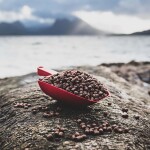Here’s a recap of this week’s can’t-miss SeafoodSource news stories and commentaries:
• Don’t miss SeafoodSource Contributing Editor Jason Holland’s commentary “The eco-label debate,” which poses the question, “Are seafood eco-labels resonating with consumers?” According to Which? — Europe’s largest consumer-rights organization — they’re not. But it may not matter right now, writes Holland, as there’s undeniable momentum for putting eco-labeled seafood products on store shelves and restaurant plates.
• Check out the Q&A SeafoodSource Contributing Editor Lindsey Partos did with Patrick Chauchard of Fumage d’Arzon, which is experiencing strong year-on-year growth despite the economic downturn, thanks to the Brittany-based company’s focus on quality. Chauchard sources only Scottish Label Rouge farmed salmon for smoking.
• The Vietnam Association of Seafood Exporters and Producers was unwillingly thrust into the spotlight recently after critics in the United States and United Kingdom panned the country’s burgeoning pangasius industry. In an exclusive interview with SeafoodSource, VASEP clears up the misperceptions surrounding the fish and how it’s farmed and processed.
• The presence of illegal residues in shrimp and other species re-emerged in the news two weeks ago when the popular U.S. TV show “Today” reported on the issue. But, according to European and Bangladeshi scientists, some residues may occur naturally. Research presented at a symposium in Belgium found that semicarbazide — the metabolic marker used to detect the illegal antibiotic nitrofurazone — may occur naturally in crustacean shells. The study was prompted by the presence of semicarbazide in Bangladeshi freshwater prawns, which caused the EU to issue more than 50 import alerts last year.
• The International Commission for the Conservation of Atlantic Tuna (ICCAT) agreed to cut the Atlantic bluefin tuna quota in the eastern Atlantic and Mediterranean to 12,900 metric tons in 2011. But the 600-metric-ton quota cut wasn’t nearly as much as the environmental community had hoped for. World Wildlife Fund, Greenpeace and the Pew Environment Group lashed out at ICCAT for failing to protect the species and caving to political pressure, and now the U.S.-based Center for Biological Diversity is calling on consumers and chefs to boycott bluefin.





